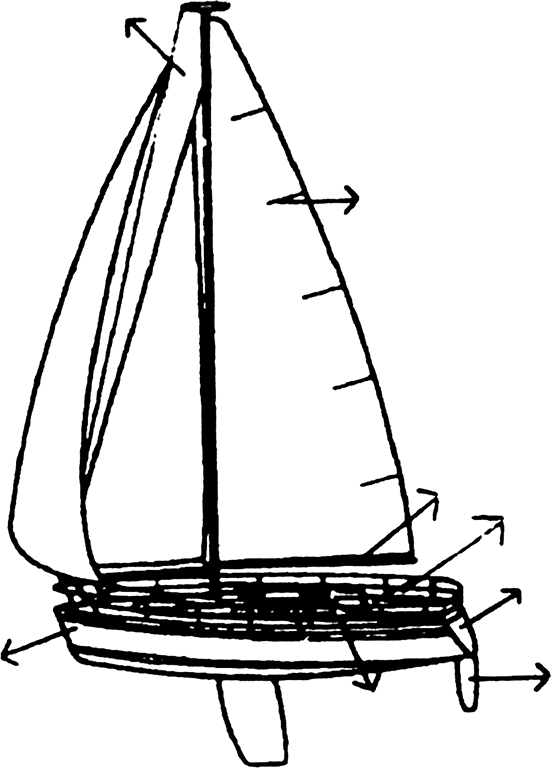Sponsor Area
We’re Not Afraid To Die... If We Can All Be Together
What lessons do we learn from such hazardous experiences when we are face-to-face with death?
Life is full of horrors and excitements. There are people who live life as it comes to them. They never fear death. Nor do they hesitate to undertake hazardous experiences. Such ordeals and hazardous experiences are quite rewarding. There is no gain without pains. In the lesson, “We’re not Afraid to Die ......”, the narrator undertakes to duplicate the round-the-world voyage of Captain James Cook. It was a 1,05,000 kilometre journey. Gigantic waves and thundering storms brought untold sufferings and disasters. The boat Wavewalker had been professionally made and tested in the roughest weather. But gales and waves broke over the ship. Wavewalker was near capsizing. The narrator’s eft ribs cracked and his mouth was filled with blood and broken teeth. Even his little daughter Sue had a big bump above her eyes. But the narrator had no time to worry about such things.
Such dangerous experiences teach us to be fearless and brave. Hardships and accidents have to be faced boldly. A perfect team-work helps us to survive against such disasters. The narrator, crewmen like Larry and Herb and even children showed a rare courage. They declared that they were not afraid to die. Hope sustains life. Patience and hardwork are rewarded in the end. The Amsterdam was just in front of their eyes. The next morning, all 28 inhabitants of the island cheered and helped them ashore.
Some More Questions From We’re Not Afraid to Die... If We Can All be Together Chapter
Describe the shifts in the narration of the events as indicated in the three sections of the text. Give a subtitle to each section.
What difference did you notice between the reaction of the adults and the children when faced with danger?
How does the story suggest that optimism helps to endure “the direst stress”?
What lessons do we learn from such hazardous experiences when we are face-to-face with death?
Why do you think people undertake such adventurous expeditions in spite of the risks involved?
The following words used in the text as ship terminology are also commonly used in another sense. In what contexts would you use the other meaning?
knot
stern
boom
hatch
anchor
knot
stern
boom
hatch
anchor
The following three compound words end in-ship. What does each of them mean?
airship
flagship
lightship
airship
flagship
lightship
The following are the meanings listed in the dictionary against the phrase ‘take on’. In which meaning is it used in the third paragraph of the account:
take on sth: to begin to have a particular quality or appearance ; to assume sth
take sb on: to employ sb ; to engage sb
to accept sb as one’s opponent in a game, contest or conflict
take sb / sth on: to decide to do sth ; to allow sth/sb to enter e.g. a bus, plane or ship ; to take sth/sb on board
Given on the next page is a picture of a yacht. Label the parts of the yacht using the terms given in the box.
bow
cabin
rudder
cockpit
stern
boom
mainsail
mast

bow
cabin
rudder
cockpit
stern
boom
mainsail
mast

Here is some information downloaded from the Internet on lle Amsterdam. You can view images of the isle if you go online.
Location
South Indian Ocean, between southernmost parts of Australia and South Africa
Latitude and longitude
37 92 S, 77 67 E
Sovereignty
France
Political status notes
Part of French Southern and Antarctic Lands
Population
35
Census notes
Meteorological station staff
Land area in square kilometres
86
Location
South Indian Ocean, between southernmost parts of Australia and South Africa
Latitude and longitude
37 92 S, 77 67 E
Sovereignty
France
Political status notes
Part of French Southern and Antarctic Lands
Population
35
Census notes
Meteorological station staff
Land area in square kilometres
86
Sponsor Area
Mock Test Series
Mock Test Series





